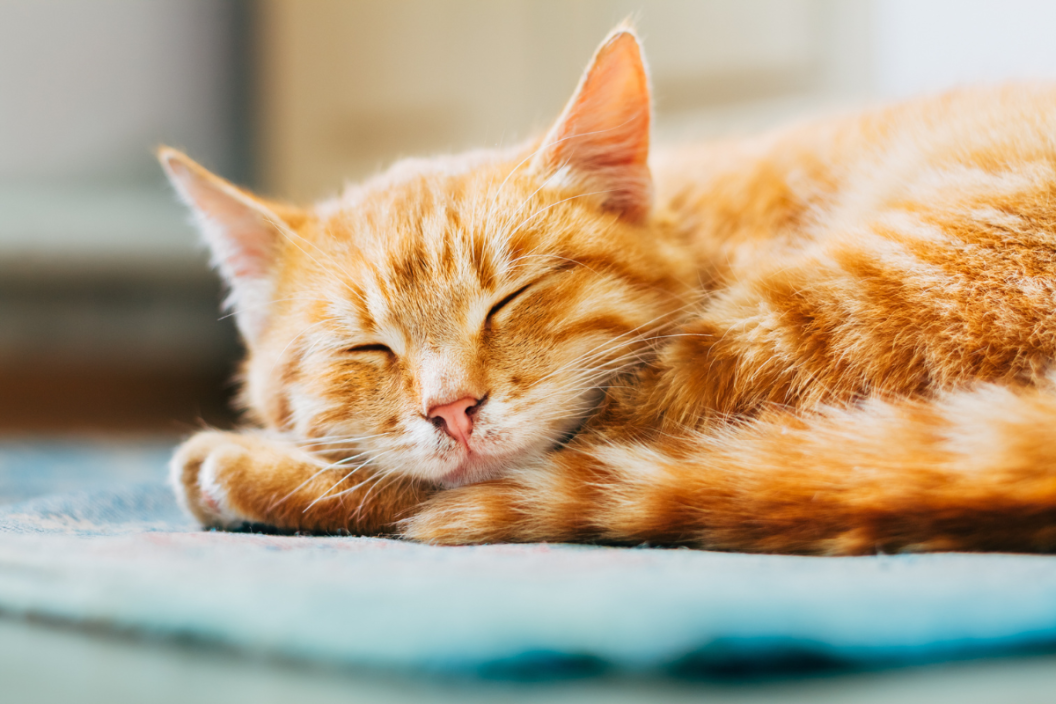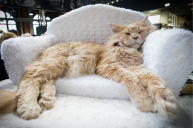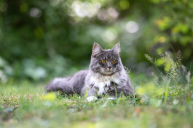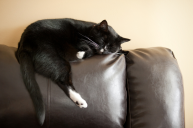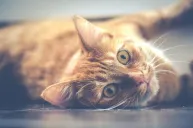Look at your cat, and there's a pretty good chance they're sleeping. Cats love to snag a nap in the sun, and are content to curl up on the couch or in a hammock for most of the day. After all, there's a reason why we call them catnaps. They might just seem lazy, but there's more to this indulgence than meets the eye. A cat sleeping all the time is a familiar sight, as domesticated cats sleep 16-20 hours a day on average. That's a lot of snoozing, but why do cats sleep so much? Concerned pet owners might wonder if their feline friend's sleeping habits are something to be worried about, especially if they seem otherwise off. When should you worry and what's normal for cats? Does your cat have normal sleeping patterns, or is it something else?
Are Cats Nocturnal?
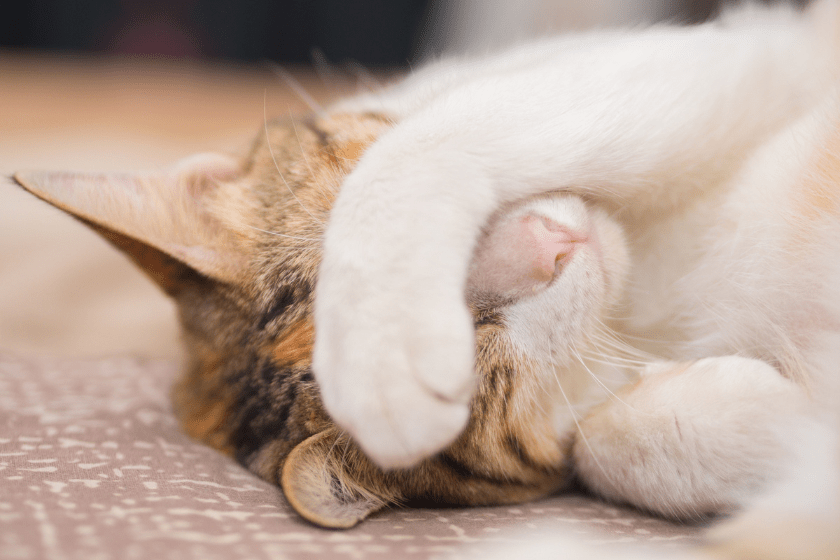
Although many adult cats and kittens are active at night, their species is crepuscular, which means they "come alive" in the twilight hours at dawn and dusk. These natural predators prefer the night time for hunting and playtime, but they won't disrupt your own sleep cycle too much if you're a lark. Cats will also adapt somewhat to their owner's tendencies, as they love structure and habit.
Cats also adapted to sleep for extended periods during the day. Wild cats rely on recharging to save energy for hunting, chasing, and killing their next meal. Even though our house cats do not need to hunt, the urge to sleep and plan for the hunt remains. Even if you have a purely indoor cat, you can occasionally see the same primitive instincts and sleeping patterns in the form of pouncing and long periods of rest. Cats in the wild expend a lot of energy hunting and need to rest afterward. Your cat probably expends a lot of energy bothering you for a snack, or going in and out of the house at whim, and similarly needs to recharge.
Cats do sleep soundly at times, but not all of the time. Cats, like humans, love their naps. Light sleeping accounts for about 3/4 of your cat's nap time, with deep sleep accounting for just 1/4. When cats snooze lightly, they get the rest they need while remaining alert. When your cat is napping or in a light sleep, you can note that its eyes are slightly open or that its ears twitch and rotate in response to noises.
Other Reasons Cats Love Sleep
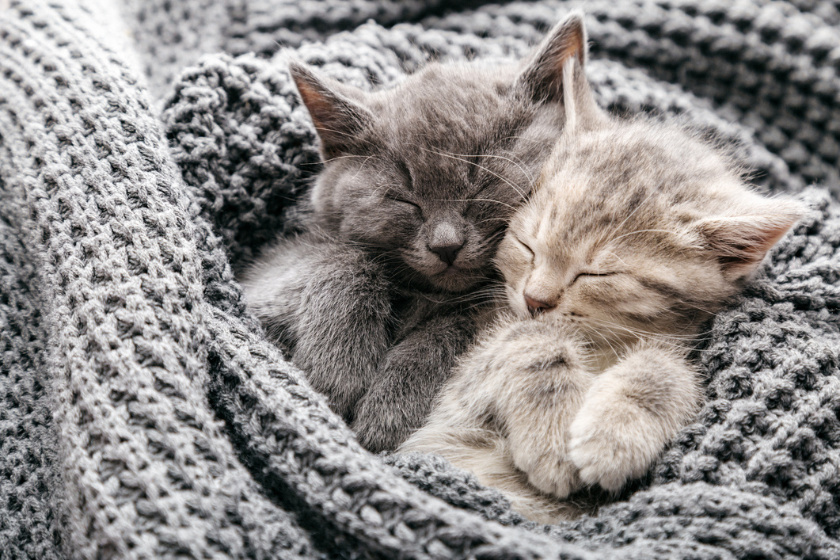
Felines have also evolved to live in hot climates, and their ability to survive in such locations indicates that they have worked out how to stay cool. Other fur-covered mammals can get by on 8 hours or less per cycle, but cats also sleep to help control body temperature as well as for pleasure. On a cold, rainy day, your feline friend could snooze even longer. Rapid brain activity occurs in 5-minute intervals, with lighter dozing patterns in between. Otherwise, cats nap in 15-30 minute intervals, readjusting their bodies to be ready to respond if and when necessary.
What About Kittens and Senior Cats?
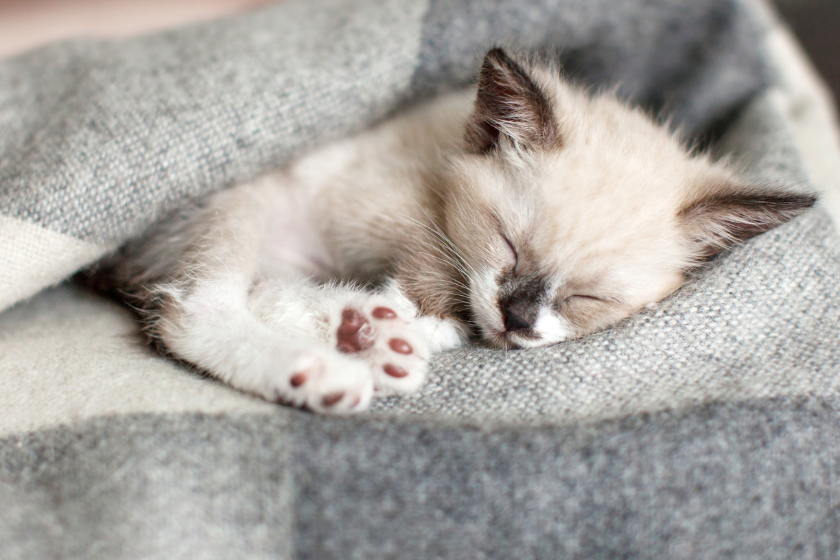
Newborn kittens usually sleep 24 hours a day, only waking up to nurse. As a kitten grows older, the amount of sleep required decreases to an average of 16 hours per day. Adolescents can have irregular sleeping habits as well as bursts of extreme playfulness. Adults have more regular sleeping schedules, averaging 12-20 hours of sleep a day. Older cats have less stamina and agility, which causes them to sleep more than younger cats.
When your kitten reaches maturity, he or she will most likely develop a familiar pattern of sleeping and waking. For example, you may find that they will wake up just before you in the early morning, spend an hour or two eating and socializing with you, then go back to sleep as you go about your business. If you're a night owl like your cats, you might find that your feline friends love sleeping in on the weekends as much as you do.
Share your sleeping cat pictures on the Wide Open Pets Facebook page!
This article was originally published May 28, 2021.
